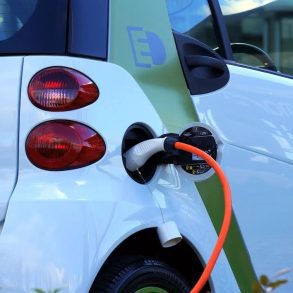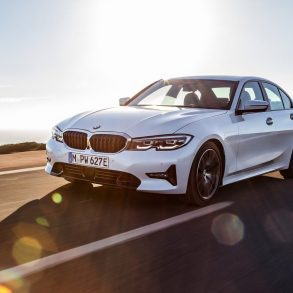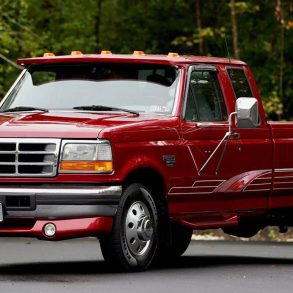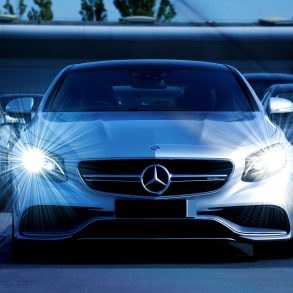
 Let’s talk about automotive mergers again, because Sergio Marchionne, CEO of Fiat-Chrysler Automobiles, keeps going on about them being necessary to achieve the economies of scale needed for automakers in the current, highly competitive marketplace, and in order to spread the cost of investments in fuel efficiency, connectivity, autonomous driving and electrification. Okay, in all honesty, Sergio isn’t the only one saying it’s becoming “too expensive to make cars”, but he is the most outspoken one on the subject and he keeps flirting with other automakers to merge, most notably General Motors, so he’s an easy target for my rants.
Let’s talk about automotive mergers again, because Sergio Marchionne, CEO of Fiat-Chrysler Automobiles, keeps going on about them being necessary to achieve the economies of scale needed for automakers in the current, highly competitive marketplace, and in order to spread the cost of investments in fuel efficiency, connectivity, autonomous driving and electrification. Okay, in all honesty, Sergio isn’t the only one saying it’s becoming “too expensive to make cars”, but he is the most outspoken one on the subject and he keeps flirting with other automakers to merge, most notably General Motors, so he’s an easy target for my rants.
And to a certain degree I can relate with him. Like he says, it doesn’t make any sense at all for every single automaker to develop -for example- hydrogen fuel cell technology in-house, so each of them has to “invent the wheel” by all themselves. Of course it would save tons of money for the automakers, and therefore for new car buyers, if development costs of a new technology could be spread among a cooperation of automakers, but guess what? This already happens a lot without any of them having to actually merge. Besides that, a lot of technologies in vehicle safety or fuel efficiency already get developed by suppliers, like Bosch, Magna or Denso, who then sell a license to the technology to a number of automakers, and thus spreading the development costs.


 Besides that, cooperation between competing automakers already happens a lot, for example between General Motors and Ford. These companies are each others greatest rival in the highly competitive North American auto market (and other markets for that matter), but they still work together on, among others, the development of 10-speed transmissions to be used in their next generation rear-wheel drive trucks and cars. They work together on these specific technologies because it makes economic sense for them to spread the development costs, but they then deploy the technology in competing cars and trucks, and will attempt to outclass each other in other areas when marketing the cars that feature these technologies.
Besides that, cooperation between competing automakers already happens a lot, for example between General Motors and Ford. These companies are each others greatest rival in the highly competitive North American auto market (and other markets for that matter), but they still work together on, among others, the development of 10-speed transmissions to be used in their next generation rear-wheel drive trucks and cars. They work together on these specific technologies because it makes economic sense for them to spread the development costs, but they then deploy the technology in competing cars and trucks, and will attempt to outclass each other in other areas when marketing the cars that feature these technologies.
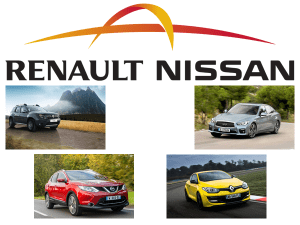
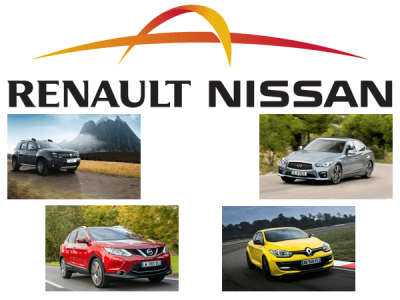 Don’t get me wrong, I don’t principally oppose industry mergers, because I believe there are certain advantages to be achieved when companies become deeply intertwined, but it does take a lot of effort and a lot of coordination. A lot of mergers from the past have failed miserably at achieving the synergies projected at their inception, and both Fiat (with General Motors) and Chrysler (with Daimler) are no strangers from those deceptions. Carlos Ghosn has made it work with Renault and Nissan, two midsized automakers who combine to make a large one: currently #4 worldwide, and who have achieved synergy savings of € 3,8 billion just last year (up from € 2,87 billion in 2013). And at 8,5 million annual unit sales, they’re currently almost twice as large as Fiat-Chrysler is at 4,75 million units.
Don’t get me wrong, I don’t principally oppose industry mergers, because I believe there are certain advantages to be achieved when companies become deeply intertwined, but it does take a lot of effort and a lot of coordination. A lot of mergers from the past have failed miserably at achieving the synergies projected at their inception, and both Fiat (with General Motors) and Chrysler (with Daimler) are no strangers from those deceptions. Carlos Ghosn has made it work with Renault and Nissan, two midsized automakers who combine to make a large one: currently #4 worldwide, and who have achieved synergy savings of € 3,8 billion just last year (up from € 2,87 billion in 2013). And at 8,5 million annual unit sales, they’re currently almost twice as large as Fiat-Chrysler is at 4,75 million units.
I would be able to relate to Sergio’s need to quickly grow north of his “bare minimum” of 6 million units, which would be achieved by merging with for example Suzuki, Mazda or, like I’ve said before, a Chinese automaker. But his advances at GM are simply irrational: not only would anti-competition agencies oppose a full merger of this size, it would be like trying to connect the Titanic to an iceberg. The company would become a 14 million unit Juggernaut, too large to manage, there would be too many (competing) brands, too many platforms and it would take decades to merge the two cultures.

 In my opinion, cooperation is the key word for automakers, and not mergers. Competing automakers can work together and help each other in certain areas where they feel the need, but compete in areas where they can. Take for example the cooperation between Renault-Nissan and Daimler, or more specifically, that of Infiniti and Mercedes-Benz: Infiniti is the luxury brand of Nissan, but doesn’t have the worldwide volume of Mercedes-Benz, BMW or Audi to directly compete with those brands. And for Renault-Nissan Group to develop high-end engines they won’t need for their volume brands would be too costly to develop just for Infiniti.
In my opinion, cooperation is the key word for automakers, and not mergers. Competing automakers can work together and help each other in certain areas where they feel the need, but compete in areas where they can. Take for example the cooperation between Renault-Nissan and Daimler, or more specifically, that of Infiniti and Mercedes-Benz: Infiniti is the luxury brand of Nissan, but doesn’t have the worldwide volume of Mercedes-Benz, BMW or Audi to directly compete with those brands. And for Renault-Nissan Group to develop high-end engines they won’t need for their volume brands would be too costly to develop just for Infiniti.
Besides for the obvious savings in development costs, Infiniti might even benefit from a marketing perspective by claiming to offer Mercedes-Benz engines and transmissions. However, in the long run, when (if) Infiniti becomes large enough, they will want to distance themselves from their tutor and actually make better engines themselves, and therefore become a full-blown competitor by challenging and eventually beating their former partner. Because that’s how competition works.
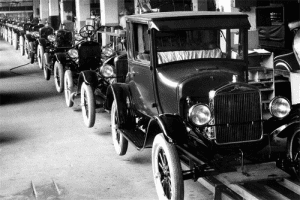
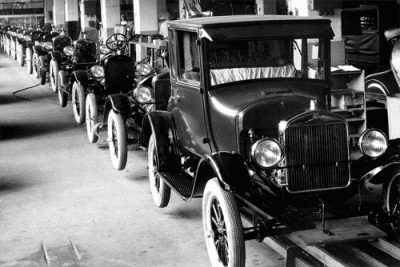 Competition breeds innovation, and innovation is what has taken this industry to where it is now. So while a merger between two automotive giants may prove beneficial for them both, the industry as a whole might suffer in the long run. Henry Ford developed the assembly line because he wanted to be smarter and more efficient than his competitors. Can you imagine where we would be if it weren’t for his competitive spirit? And if it wasn’t for his competitors, our only choice of color would still be black. I think cooperation between competing automakers is what will shape the future of our industry, and not mega-mergers creating corporate juggernauts with too many managers to actually manage and too little competition to breed innovation.
Competition breeds innovation, and innovation is what has taken this industry to where it is now. So while a merger between two automotive giants may prove beneficial for them both, the industry as a whole might suffer in the long run. Henry Ford developed the assembly line because he wanted to be smarter and more efficient than his competitors. Can you imagine where we would be if it weren’t for his competitive spirit? And if it wasn’t for his competitors, our only choice of color would still be black. I think cooperation between competing automakers is what will shape the future of our industry, and not mega-mergers creating corporate juggernauts with too many managers to actually manage and too little competition to breed innovation.



